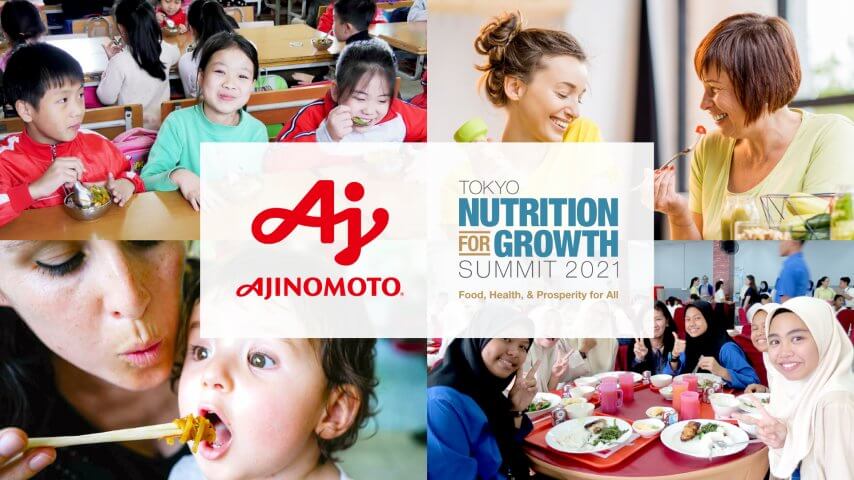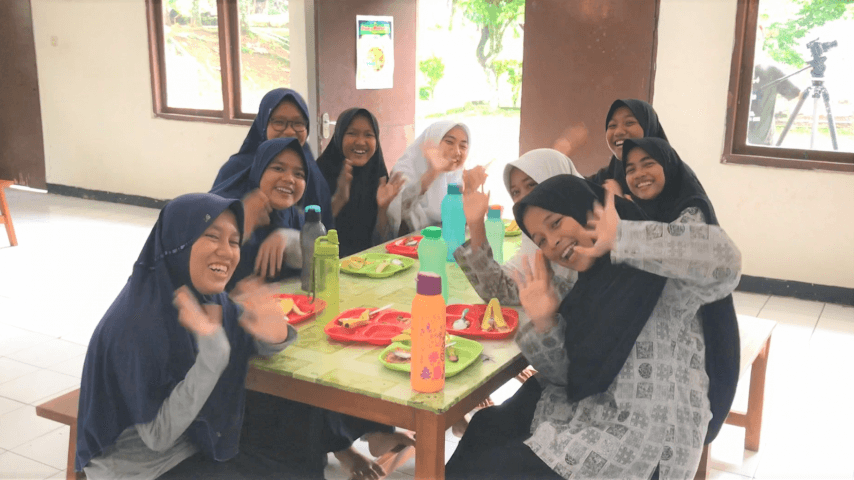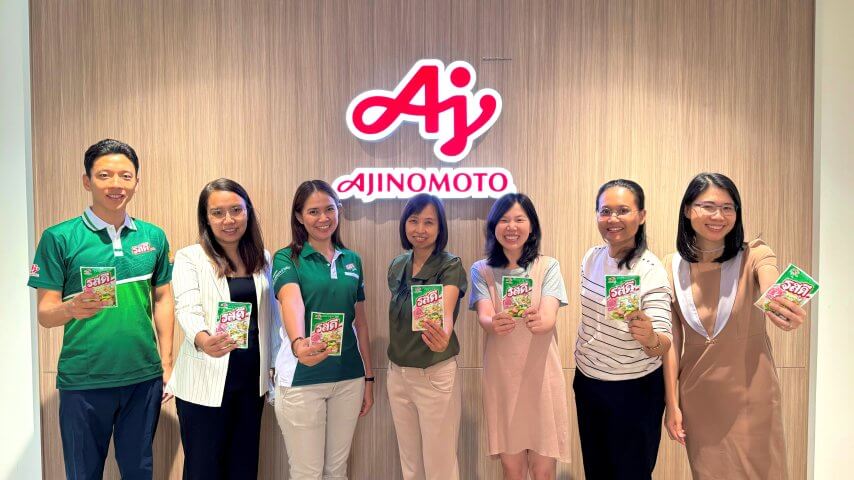Reading Time: 6 minutes
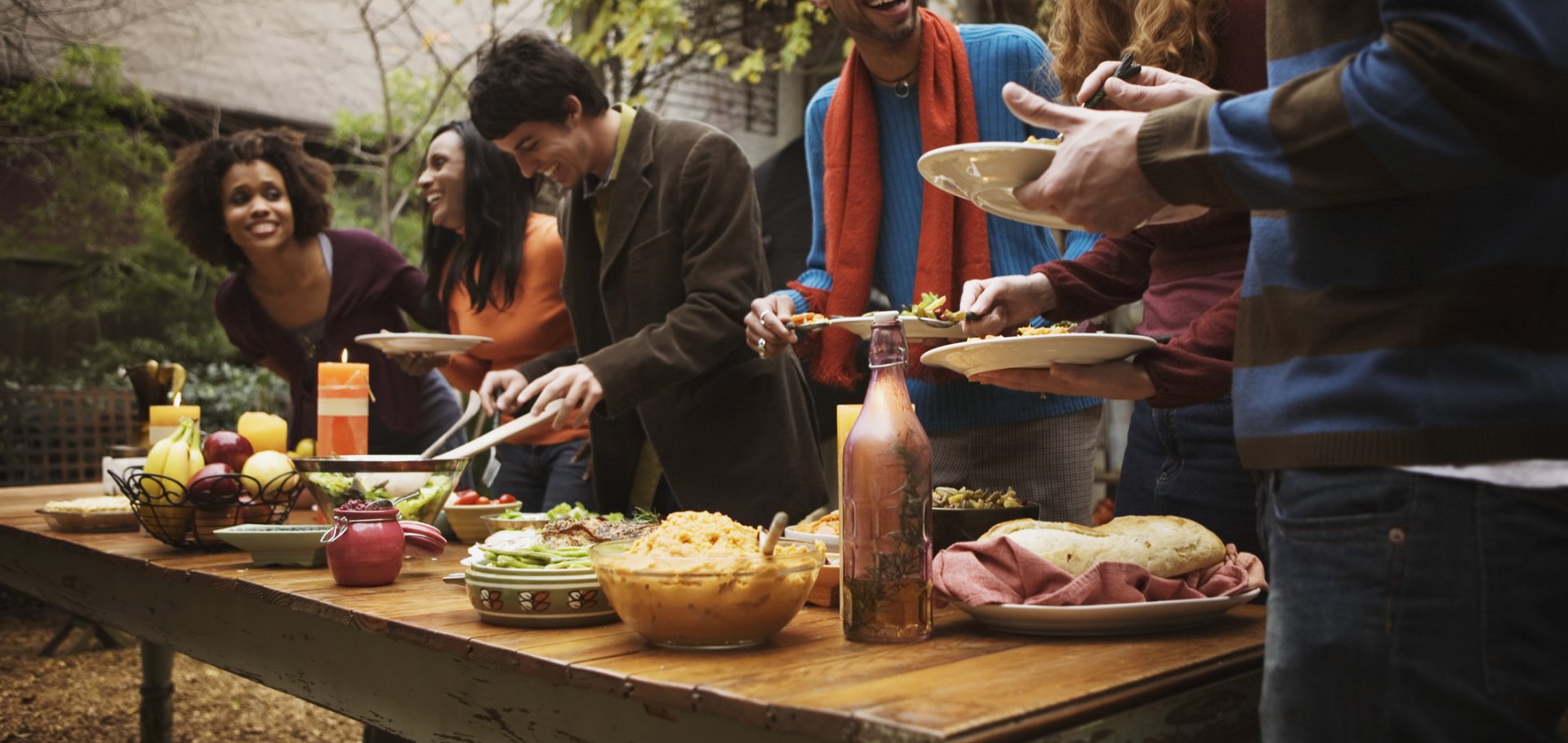
Table of Contents
People who don’t often cook may feel unexpectedly happy and uplifted when preparing a meal for family or friends, or when sharing a meal with others. It seems clear that preparing and sharing nutritionally balanced meals offer various benefits. However, there has been little evidence to support what we all sense are the benefits of cooking and communal eating.
Food seems to be more than just nourishment; it’s a way to connect with others, foster happiness, and enhance overall well-being. The Ajinomoto Group is dedicated to promoting the joys of cooking and communal dining and aims to enrich the lives of people worldwide, improving not only physical health but also mental and emotional well-being.
Building a Knowledge Platform for Well-being
Recognizing the importance of research in promoting well-being, the Ajinomoto Group has established a platform for empirical research and knowledge exchange through the Ajinomoto Research Fellowship in partnership with the University of Oxford’s Well-being Research Centre. This collaboration focuses on studying the links between diet, lifestyle, and well-being. It aims to provide scientific insights that can guide our efforts to create products that support healthier and happier lifestyles.
The Group’s research into the benefits of communal eating is aligned with growing international interest in the subject. The 2025 World Happiness Report included a chapter on how sharing meals supports happiness and social connections. The Report notes that “social connections are important drivers of happiness, both at the individual and national level, and across cultures.”
How Cooking and Sharing Meals Elevate Well-being
The Ajinomoto Group has partnered with Gallup as part of their World Poll to understand how the act of cooking and eating together affects people’s well-being across different cultures and regions. This comprehensive survey, spanning over 140 countries, revealed that cooking and dining with others contribute to happiness by strengthening relationships and providing a sense of belonging. It highlighted that people who frequently cook and eat with others tend to derive a great sense of accomplishment, creativity, and joy from providing for themselves and their loved ones.

Who’s having fun in the kitchen?

Levels of cooking enjoyment around the world
The survey found that the enjoyment of cooking varies across regions and demographic groups. For many, preparing a meal is not just a chore—it’s a creative outlet and a way to express love and care. This connection to cooking and sharing meals is deeply embedded in cultures worldwide, from family dinners in Latin America to communal feasts in Asia. These findings underscore the universal nature of shared meals in fostering a sense of well-being, even as the specific traditions and preferences vary from place to place.
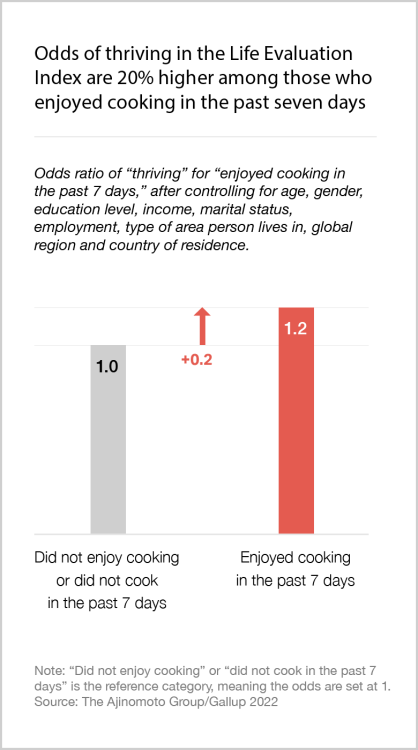
The positive impact of cooking on well-being
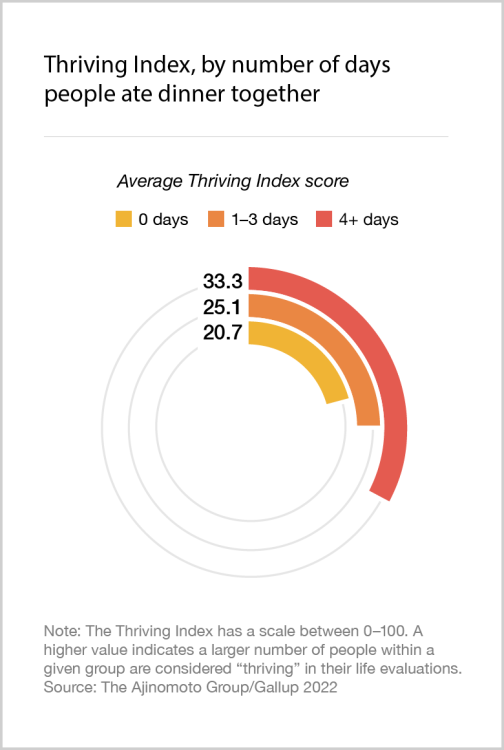
The joy of eating together—in numbers
High-Quality Products for a Balanced Diet
Central to the Ajinomoto Group’s vision is our dedication to providing high-quality, delicious products that contribute to a balanced diet. We understand that enjoying food is fundamental to a healthy life, and our solutions are designed to make nutritious eating both enjoyable and accessible. We’re focused on helping make it easier for people to create satisfying meals that are both good for the body and the soul.
By emphasizing the importance of umami and the depth of food flavor, we help people reduce the need for excess salt and sugar, supporting healthier choices without compromising taste. Our innovations in flavor, including research into kokumi and other taste-enhancing substances, allow people to enjoy a richer culinary experience that supports well-being.
Enhancing Quality of Life through Food
The Ajinomoto Group’s efforts to promote the joys of cooking and communal dining reflect our broader mission of enhancing quality of life globally. We believe that by encouraging the simple yet profound act of sharing meals, we can create moments of connection and joy that transcend cultural boundaries. As we continue to innovate and expand our reach, our goal remains clear: to bring people together around the table and help them “Eat Well, Live Well.”
By 2030, we are committed to extending the healthy life expectancy of 1 billion people, contributing to a world where food is not only a source of nourishment but also a means to enrich lives, foster connections, and build a healthier, more joyful future for all.

